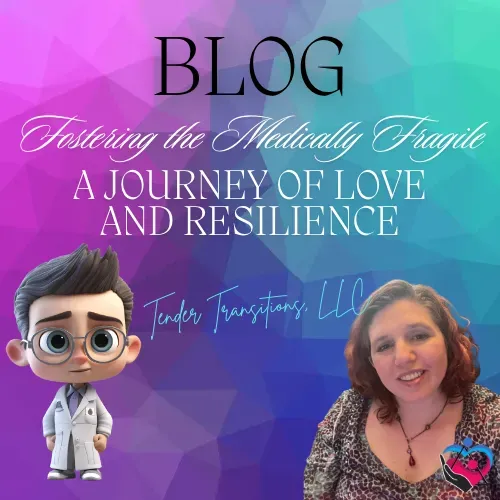Becoming a Foster Parent: Expectations Versus Reality
Becoming a Foster Parent: Expectations Versus Reality**
Deciding to become a foster parent is a significant and transformative choice, driven by the desire to make a difference in a child's life. However, the journey from considering foster care to actually becoming a foster parent often involves navigating a complex landscape of expectations and realities. Understanding these dynamics can help you prepare for the challenges and rewards of fostering. In this blog post, we’ll explore common expectations versus the realities of being a foster parent, offering insights to help you approach this important role with a balanced perspective.
1. Expectation: An Easy Transition
Expectation:
Many prospective foster parents envision a smooth transition into fostering, believing that the process will be straightforward once they are approved. They may expect that children will quickly adapt to their new environment and that the fostering experience will be largely positive and uncomplicated.
Reality:
The transition to fostering can be challenging and may not always proceed as smoothly as anticipated. Children entering foster care often come from traumatic backgrounds, which can result in behavioral and emotional difficulties. Adjusting to a new home can be stressful for them, and it may take time for both the child and foster parents to establish a sense of stability and routine. Patience, empathy, and flexibility are crucial as you navigate this period of adjustment.
2. Expectation: A Supportive System
Expectation:
Many people expect that once they become foster parents, they will receive ample support from their agency, social workers, and the foster care system. They may assume that guidance and resources will be readily available to help them manage the complexities of fostering.
Reality:
While support systems are in place, they may not always meet your immediate needs or expectations. The level of support can vary depending on the agency and local resources. You may need to be proactive in seeking help, advocating for the child’s needs, and accessing available resources. Building strong relationships with caseworkers and other professionals can help you navigate challenges and find the support you need.
3. Expectation: Immediate Bonding
Expectation:
Prospective foster parents often anticipate that they will quickly form strong, loving bonds with their foster child. They may believe that the child will immediately respond to their care with affection and trust.
Reality:
Building a bond with a foster child can take time, especially if the child has experienced trauma or instability. Trust and attachment are processes that evolve gradually. Children may exhibit behaviors that reflect their past experiences, such as withdrawal or resistance to affection. Developing a meaningful relationship requires patience, consistency, and understanding. It’s important to manage expectations and recognize that bonding is a journey that unfolds over time.
4. Expectation: A Fairly Predictable Routine
Expectation:
Many foster parents expect that their daily routines will become predictable and manageable once the child settles in. They may envision a structured schedule with regular activities and a sense of normalcy.
Reality:
The reality of fostering often involves unpredictability. Foster children may have medical appointments, behavioral issues, or unexpected crises that disrupt daily routines. Flexibility is key to adapting to the needs of the child and the demands of caregiving. Being prepared for changes and maintaining a degree of adaptability can help you manage the uncertainties that come with fostering.
5. Expectation: Positive Outcomes for Every Child
Expectation:
There is an expectation that every child placed in foster care will eventually thrive and have a positive outcome as a result of being in a loving foster home. This optimism can stem from the belief that a stable environment will resolve all of the child’s issues.
Reality:
While foster care can provide significant benefits, not every child’s experience will lead to an immediate or straightforward positive outcome. Children in foster care may have complex needs, and their progress can be influenced by various factors, including their past trauma and support systems. Success in fostering is not always measured by immediate improvements but by the ongoing efforts to support and care for the child in a nurturing environment.
6. Expectation: Minimal Impact on Family Dynamics
Expectation:
Prospective foster parents might assume that fostering a child will have minimal impact on their existing family dynamics. They may expect that their family will seamlessly adjust to the new addition without major disruptions.
Reality:
Introducing a foster child into your home can have a significant impact on family dynamics. Existing family members may need to adapt to new routines, share attention, and navigate changes in their daily lives. Open communication and involving all family members in the process can help manage these transitions. It’s important to address any concerns and work together to create a supportive environment for everyone involved.
7. Expectation: Immediate Gratification
Expectation:
Many people enter fostering with the expectation of immediate emotional gratification, believing that the rewards of helping a child will be quickly apparent and deeply satisfying.
Reality:
While fostering can be incredibly rewarding, the gratification often comes over time and may not always be immediate. The journey involves navigating challenges, making sacrifices, and facing setbacks. The rewards are often found in the long-term impact of your care, the gradual development of trust and relationship, and the satisfaction of knowing you’ve made a difference in a child’s life.
Conclusion
Becoming a foster parent involves a complex interplay of expectations and realities. While the journey can be immensely rewarding, it also requires resilience, patience, and flexibility. Understanding that the path to fostering is not always straightforward can help you approach this role with a realistic perspective and prepare you for the challenges and triumphs ahead. By balancing your expectations with the realities of fostering, you can better navigate the journey and provide meaningful support to the children who need it most.

